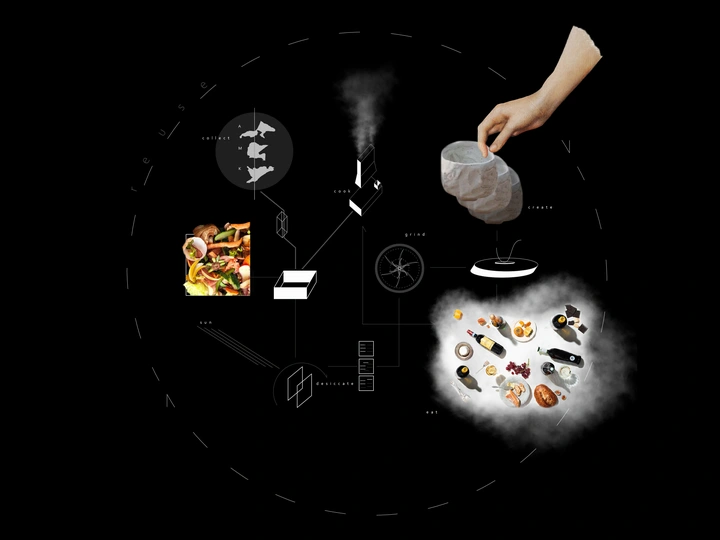Communal Food Practices: A Sustainable approach

I hold a diploma in architecture from the polytechnic school of the University of Patras, Greece, where I graduated with honors in 2023. My diploma thesis was written under the supervision of Prof. D. Giannisis and Dr. G. Giannoutsos. I have worked as an intern in major architectural studios such as Atelier 66 (D. Antonakakis; Athens, Greece) and DMAA (Vienna, Austria). My main interest in architecture lies in what our field can contribute to the protection of the environment and how these contributions can be exploited to the fullest to improve human life.
Food consumption in the company of others can become a rewarding experience. However, the consumption of food and the waste produced from it have become one of the planet's most significant problems. These thoughts led to the creation of a multidimensional space in Kakia Skala (Greece), within which social interaction, food consumption and material experimentation coexist. One of the scopes of the project is to develop a method that will allow mass production of ceramics primarily or exclusively from organic material coming from cooking (e.g. eggshells, potato peels, etc.).
The project is located next to the Skironio Museum, where artists from all over the world gather to connect, discuss art, and exchange ideas. In the present project, to further promote the concept of communication and social interaction, while also addressing a contemporary issue, I tried to combine socialization with food. In the designed space, workshops that allow individuals to engage in cooking experiments with minimal organic waste are the central concept. These workshops are followed by communal dining. Also, organic material is collected from surrounding areas and from waste produced from the space’s main usages. The collected materials are dried, ground into powder, and further processed to form the basis for the production of food consumption vessels.
Throughout the process of working on the project I produced vessels on my own using organic materials collected from cooking. Although the resulting products were very interesting, they were apparently not suitable for dining purposes. In the coming months, however, I intend to collaborate with a ceramist in Pilio, to refine and test the whole process. The organic waste with which we will be experimenting is collected from Akra restaurant in Athens.
In our space, a cyclic process takes place, where people enjoy food, come into contact with others, and stimulate their creativity by discovering the many forms organic materials can take.